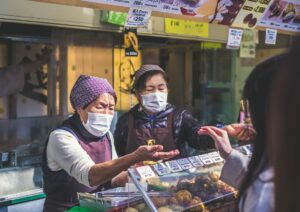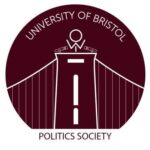
by Elsa Bauer, BSc Politics & International Relations at Bristol University
Singapore has been grouped with nations like Hong Kong, Japan, and South Korea as global models for fighting the Coronavirus pandemic, which first broke out in December of 2019 in Wuhan, China. Singapore’s ability to contain the virus is especially impressive. Outside of China, the island has the strongest contact with Wuhan, with around 3.4 million people travelling between the two annually. Had the virus not been curbed effectively in Singapore, it could have potentially seen a rapid and uncontrollable community spread through its small, densely populated nation of only 5.7 million.
Singapore’s prompt response and lockdown, phased reopening, and the harsh penalties put in place for defiance give a reason for why many argue its successful handling of the virus. In the early weeks of the pandemic, the country introduced a system of tight measures for individuals and families affected by Covid-19. The infected person would be an inpatient at the National Centre for Infectious Diseases or Gleneagles Hospital until they tested negative two days in a row, regardless of how symptomatic they were. The person’s household would receive video calls up to three times a day by workers of the Ministry of Health to ensure their compliance with the lockdown, or risk facing a 10,000 Singapore Dollar fine. The only way someone in a household was allowed to leave their premises was by a government-sent ambulance to travel to a testing site.
Singapore’s long-term strategy was its continued success even in the slow and incremental reopening phases, which can be easily attributed to its political climate. While the country is technically a democracy, the government is able to implement very harsh punishments for those who speak out against it, the media is still state-controlled, and freedom of speech is not guaranteed. This allows the government to quickly put in place dramatic measures with the assured compliance of the population, which would indeed be practically impossible for other democracies. However, behind the sustained decrease in community cases and the stagnating death rate, the country also saw a stark rise in daily infections within the migrant worker dormitories. These primarily Bangladeshi, Malay, and Chinese workers, which accounted for 90% of Singapore’s confirmed 50,000 infections in late July, live in overcrowded complexes on the country’s outskirts where social distancing is practically non-existent. They are crammed in rooms of up to 20 people and are assigned one toilet and shower per 15 men, with meals reportedly not always delivered on time and access to essential supplies limited.
The rapid spread of the virus amongst the migrant worker population, contrasted with the containment of the disease within the outside ‘local community,’ calls for a deeper examination of how Singapore treats its migrant workers. A typical worker’s reality is to borrow large sums of money at high interest to pay their recruitment agents, to work long hours in construction earning as little as 300-400 Singapore dollars a month. They can also be subject to selective regulations, resulting in them earning less than Singaporean workers for the same job, notably cleaners, who make an average of 500 dollars less than the minimum wage of 1200 Singapore dollars under the Progressive Wage Model. These regulations serve to reinforce the already prevalent discriminatory attitudes towards migrant workers by the wider population.
Evidently, the spread of the virus in worker dormitories only exacerbated the migrant worker community’s marginalisation. Even prior to the Covid-19 outbreak, migrant workers lived in essentially segregated areas and were viewed as second class citizens from the rest of the population. The fact that the Singapore Government’s website published their daily cases in 3 categories: Cases in the community, cases residing in dormitories, and imported cases, brings to light how the workers are explicitly excluded from the term ‘community’, which refers to the otherwise ethnically diverse Singapore population of permanent residents, expatriates, and naturalised citizens. While on the surface, this classification of cases appearing by the Ministry of Health may have done more harm than good. As the ‘community cases’ trendline stabilised, the workers’ cases increased steadily, reaching a peak of 1,410 cases amongst migrant workers on the 20th of April, compared with only 16 cases of Singaporeans or Permanent Residents on the same day. The explicit separation of these two kinds of cases for the same virus reinforced the notion that the dormitory cases were a tucked-away anomaly in what was otherwise very successful management of Covid-19 and worsened the problematic ‘us’ vs ‘them’ mentality already present in Singaporean society. There have been comments made throughout media that the workers are to blame for not being clean and are driving Singapore’s infection numbers up, making the country look bad on the world stage. It goes without saying that the workers did not ask for the living conditions that have enabled a virus to spread rapidly and that they are not all within the young and healthy bracket.
The migrant worker crisis has revealed that even in one of the world’s wealthiest countries, public health issues still vary along the contours of privilege, and in this case, cultural prejudice. Fortunately, though, not all Singaporeans are unsympathetic towards the workers’ situation. A recent petition on change.org has exposed the changes that need to be made in the way workers are treated, calling on the government to put in place a comprehensive set of measures to address the problem. Most importantly, regardless of the Coronavirus pandemic, it is crucial that Singaporeans and their leaders be more empathetic and less accusatory towards the migrant workers.
Exclusive Offer: Get £100 off your Summer Internship Experience at Amplify Trading by clicking here or using our unique discount code at the checkout: MSAmplifySummer2021. Participants graduate from the course with a Diploma from the London Institute of Banking & Finance. For more information about the course, click here.

University of Bristol Politics Society
As the premier political society at UoB, the Politics Society is open to anyone who wants to become involved in the political sphere, meet like-minded people, enhance their career opportunities and deepen their political understanding.